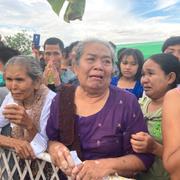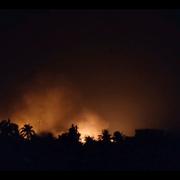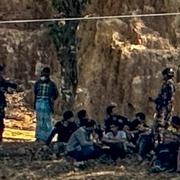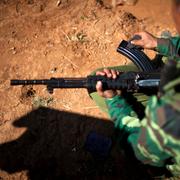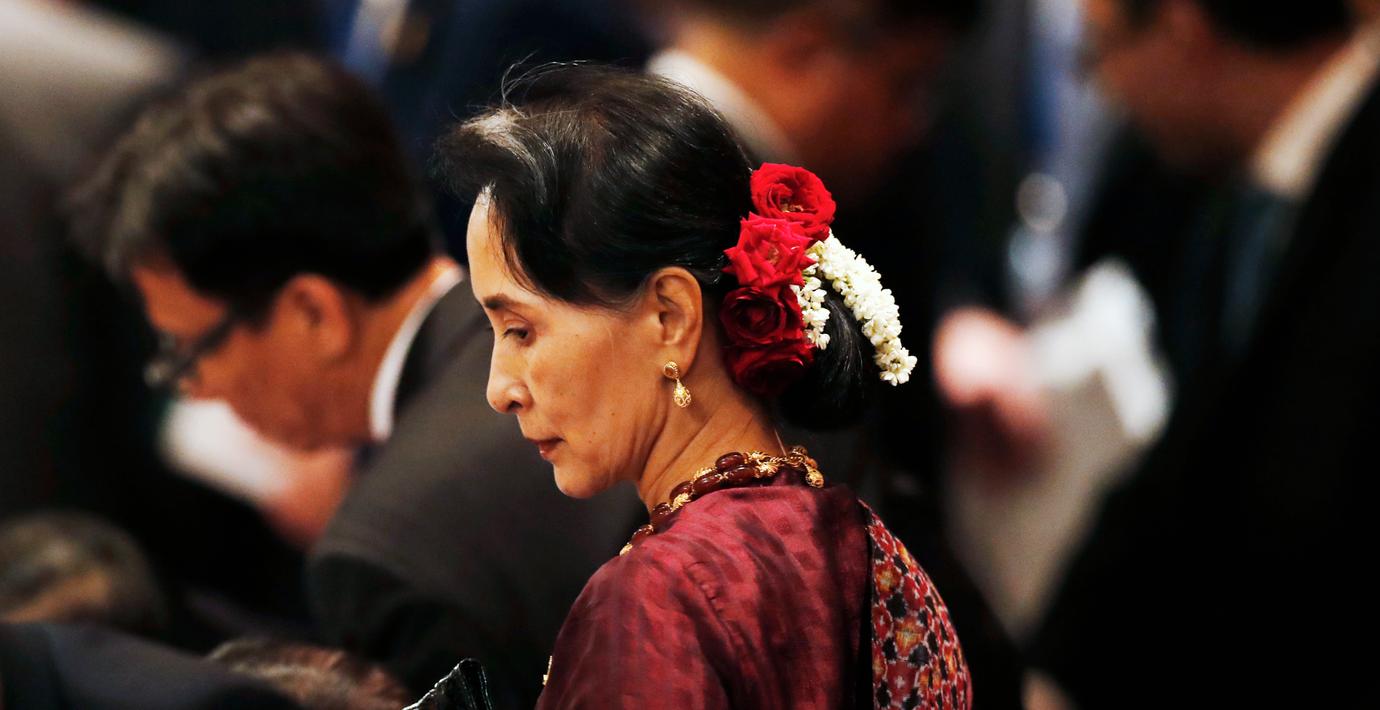
Nobelchefen: Aung San Suu Kyi får behålla fredspris
Myanmars ledare Aung San Suu Kyi fick Nobels fredspris 1991 för sitt demokratiarbete. Nu kritiserar Nobelchefen hennes passivitet inför förföljelserna av rohingyer.
– I den utsträckning som hon är ansvarig för det är det väldigt beklagligt, säger Nobelstiftelsens vd Lars Heikensten till Reuters.
Han säger samtidigt att det inte är vettigt att dra tillbaka priser.
– Det skulle innebära att vi konstant skulle behöva diskutera resultaten av vad människor gör efter att de mottagit priset.
bakgrund
Aung San Suu Kyi
Wikipedia (sv)
Aung San Suu Kyi (burmesiska: /àuɴ sʰáɴ sṵ tɕì/), född 19 juni 1945 i Rangoon, är en burmesisk politiker som sedan 6 april 2016 är Burmas statskansler. Hon är generalsekreterare för Nationella demokratiska förbundet (NLD).
Suu Kyis politiska karriär inleddes i samband med studentprotester och politiska oroligheter 1988. Året efter fängslades hon, och sedan satt hon i husarrest under nästan 15 av de 21 åren från den 20 juli 1989 fram till sin senaste frigivning den 13 november 2010. Under denna tid kom Aung San Suu Kyi att bli en av världens mest kända och framgångsrika politiska fångar. 1991 tilldelas hon Nobels fredspris.
2017 uppmärksammades hon i samband med den statliga inblandningen i omfattande förföljelser mot den burmesiska minoriteten rohingya.
bakgrund
Förföljelsen av rohingya-folket i Burma
Wikipedia (en)
The 2017 Rohingya persecution in Myanmar began on 25 August of that year when the Myanmar military forces and local Buddhist extremists started attacking the Rohingya people and committing atrocities against them in the country's north-west Rakhine state. The atrocities included attacks on Rohingya people and locations, looting and burning down Rohingya villages, mass killing of Rohingya civilians, gang rapes, and other sexual violence.
Using statistical extrapolations (based on six pooled surveys conducted with a total of 2,434 Rohingya refugee households in Cox's Bazar, Bangladesh,) Médecins Sans Frontières (MSF) estimated in December 2017 that during the persecution, the military and the local Buddhists killed at least 10,000 Rohingya people. At least 392 Rohingya villages in Rakhine state were reported as burned down and destroyed, as well as the looting of many Rohingya houses, and widespread gang rapes and other forms of sexual violence against the Rohingya Muslim women and girls. The military drive also displaced a large number of Rohingya people and made them refugees. According to the United Nations reports, as of September 2018, over 700,000 Rohingya people had fled or had been driven out of Rakhine state who then took shelter in the neighboring Bangladesh as refugees. In December 2017, two Reuters journalists who had been covering the Inn Din massacre event were arrested and imprisoned.
The 2017 persecution against the Rohingya Muslims and non-Muslims has been termed as ethnic cleansing and genocide by various United Nations agencies, International Criminal Court officials, human rights groups, and governments. British prime minister Theresa May and United States Secretary of State Rex Tillerson called it "ethnic cleansing" while the French President Emanuel Macron described the situation as "genocide". The United Nations described the persecution as "a textbook example of ethnic cleansing". In late September that year, a seven-member panel of the Permanent Peoples' Tribunal found the Myanmar military and the Myanmar authority guilty of the crime of genocide against the Rohingya and the Kachin minority groups. The Myanmar leader and State Counsellor Aung San Suu Kyi was again criticized for her silence over the issue and for supporting the military actions. Subsequently, in November 2017, the governments of Bangladesh and Myanmar signed a deal to facilitate the return of Rohingya refugees to their native Rakhine state within two months, drawing a mixed response from international onlookers.In August 2018, the office of the United Nations High Commissioner for Human Rights, reporting the findings of their investigation into the August–September 2017 events, declared that the Myanmar military—the Tatmadaw, and several of its commanders (including Commander-in-chief Senior General Min Aung Hlaing)—should face charges in the International Criminal Court for "crimes against humanity", including acts of "ethnic cleansing" and "genocide," particularly for the August–September 2017 attacks on the Rohingya. On 24 September, 2018 Jeremy Hunt the British Foreign Secretary held a meeting with some other foreign ministers on the sideline of the United Nations General Assembly to discuss the crisis in Rohingia.
Läs även
Omni är politiskt obundna och oberoende. Vi strävar efter att ge fler perspektiv på nyheterna. Har du frågor eller synpunkter kring vår rapportering? Kontakta redaktionen
